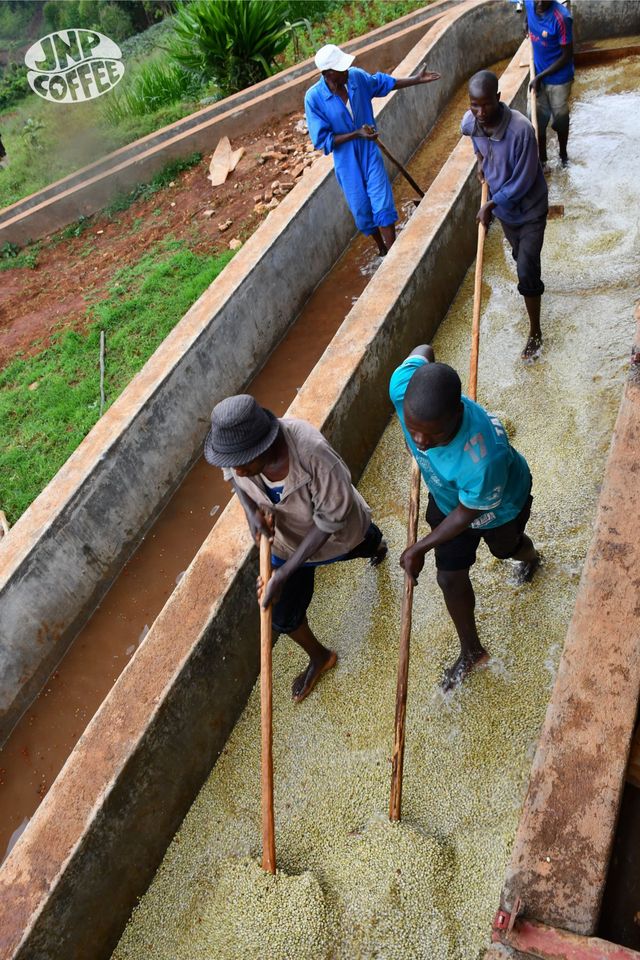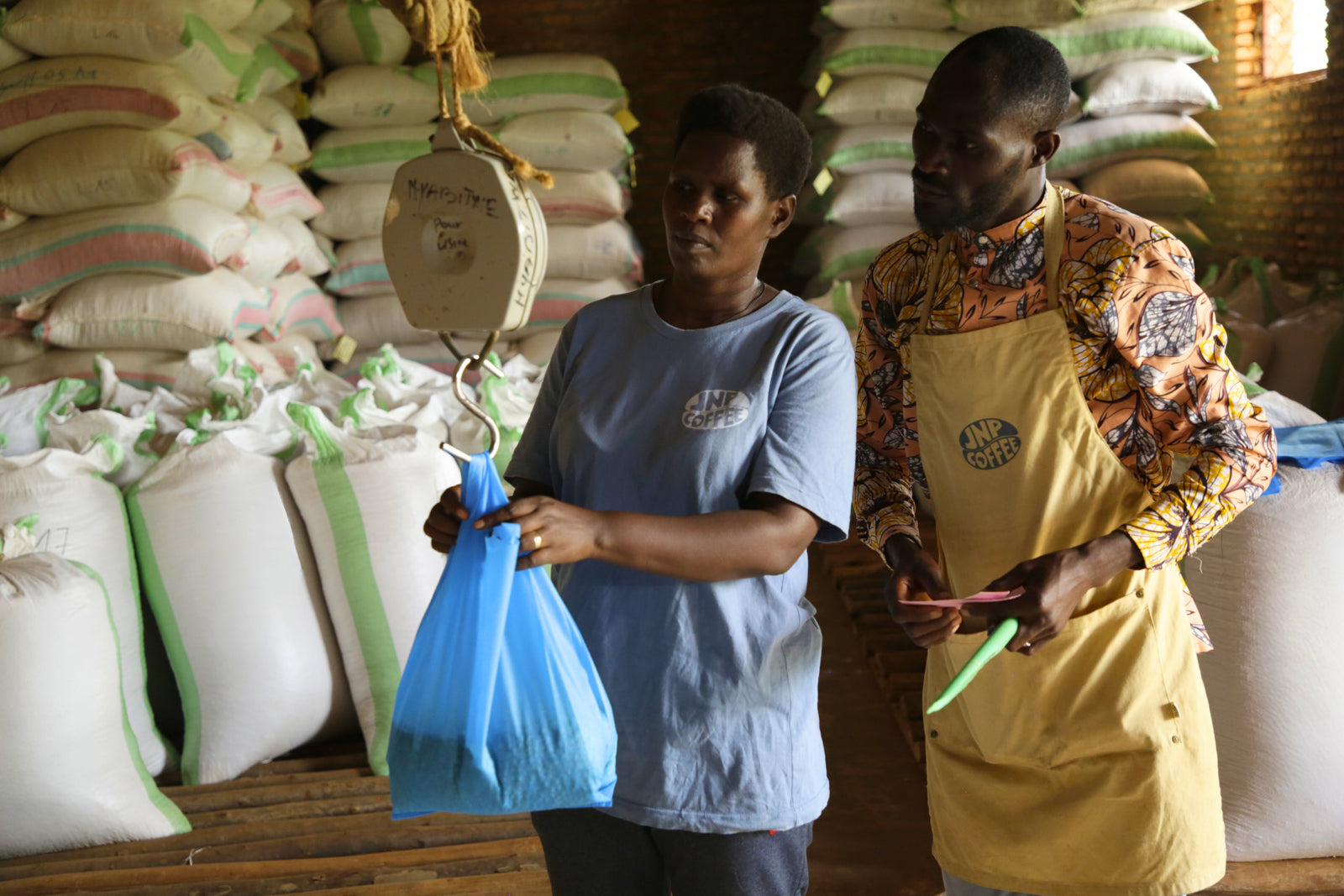Your Cart is Empty

Akeza means “beautiful” in Kirundi, the local language in northern Burundi, where these beans grow. It’s so named after the stunning natural landscapes and the equally beautiful natural coffee that result from it.
In inclement weather, road conditions to the Rango commune can be nearly impassable. When JNP founder Jeanine Niyonzima-Aroian first visited, steep roads and heavy rainfall made the trek to the commune so perilous that Jeanine vowed never to return. But she successfully completed the journey and was immediately impressed by the coffee, recognizing the unique flavors and care taken by local farmers.
Akeza coffee is grown in volcanic soil, which nourishes the plants. This terroir contributes to a bright, complex taste with sweet and spicy notes and dark chocolate on the finish.
TASTING NOTES
Dark stonefruit/cherry, vanilla, nougat
ROAST LEVEL
Dark
ELEVATION
1680m ASL
PROCESSING
Wet process (Washed)
VARIETY
Arabica, Bourbon
REGION
BUTANYERERA
BREW SUGGESTIONS
Filter methods & espresso

The Rango commune is located in Kayanza Province, and there are about 500 producers. Most farmers cultivate coffee on garden-sized plots, owning just 25 to 30 trees. They tend to these trees with exceptional care, resulting in exquisite, high-quality coffee.
Coffee is a primary source of income for these farmers. To help support them, JNP Coffee pays a premium for their beans, as well as second payments, so that farmers have the funds to support their households, pay for schools, and start secondary businesses.

In collaboration with a local farmer-turned-business owner, JNP Coffeehelped open a new, nearby washing station for the Rango commune farmers in 2021, allowing them to access same-day processing for higher-quality green coffee and greater premiums.
The wet mill includes pulping machines, raised African beds, coffee storage rooms, and post-processing clean water filtration systems. The fermentation tanks in this facility are lined with tile, rather than more traditional poured concrete. This makes them much easier to clean and enhances the final product’s purity. The wet mill is 50% woman-owned, part of JNP Coffee’s larger mission to develop social impact projects with local women farmers.
In collaboration with COSA, JNP Coffee is conducting cost-of-production and cost-of-living research for farmers. JNP Coffee provides farmers with iPhones and solar kits so they can input information on a daily basis and capture the cost of everything farmers are doing in real time. This grants them better insights into how to make more informed and critical farming decisions going forward.